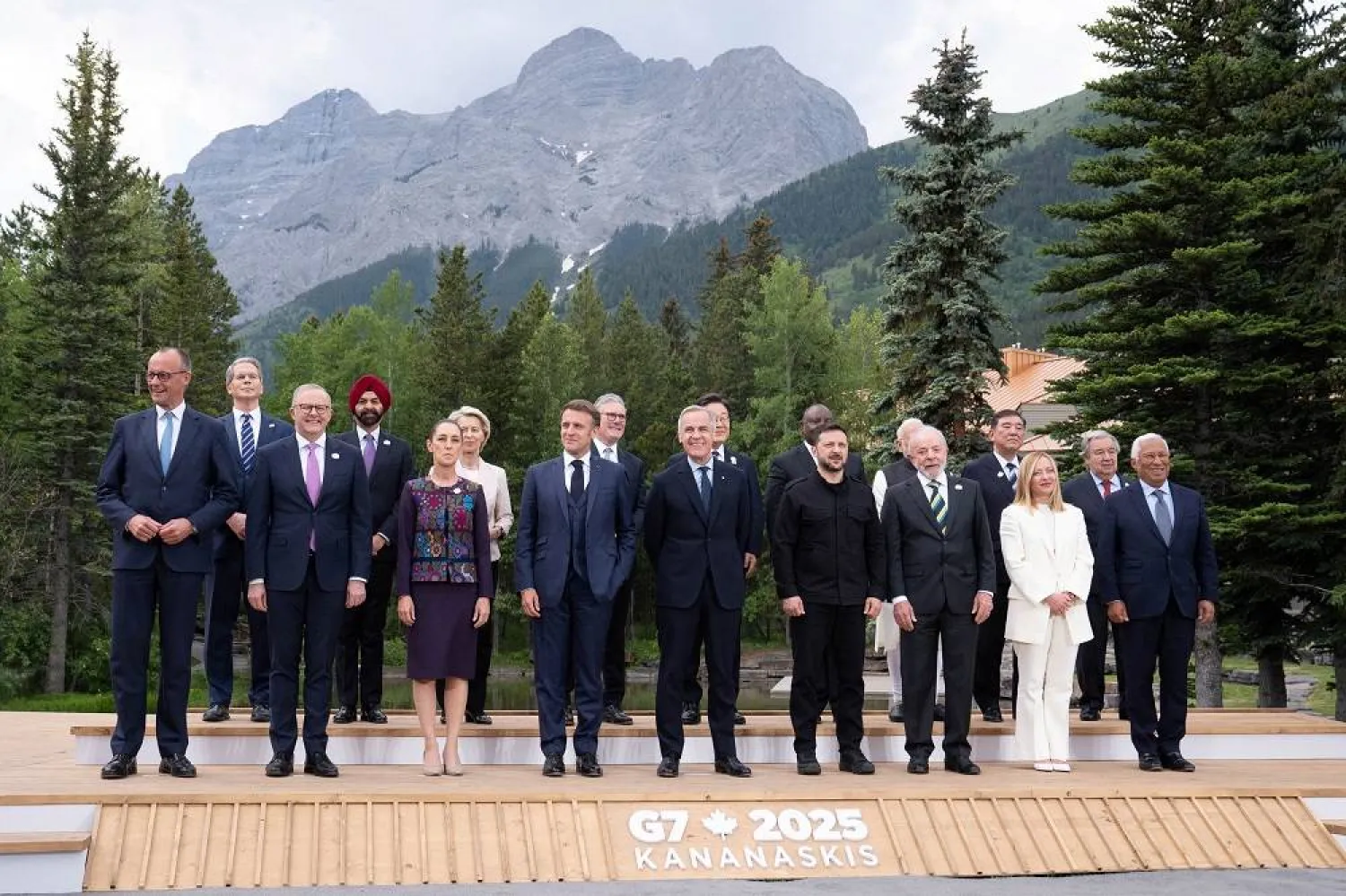Ukrainian President Volodymyr Zelenskiy leaves the Group of Seven summit on Tuesday with new aid from host Canada for its war against Russia but without a joint statement of support from members or a chance to meet with US President Donald Trump.
The G7 wealthy nations struggled to find unity over the conflict in Ukraine after Trump expressed support for Russian President Vladimir Putin and left a day early to address the Israel-Iran conflict from Washington.
Canada dropped plans for the G7 to issue a strong statement on the war in Ukraine after resistance from the United States, a Canadian official told reporters.
Canadian Prime Minister Mark Carney said Ottawa would provide C$2 billion ($1.47 billion) in new military assistance for Kyiv as well as impose new financial sanctions.
Zelenskiy said he had told the G7 leaders that "diplomacy is now in a state of crisis" and said they need to continue calling on Trump "to use his real influence" to force an end to the war, in a post on his Telegram account.
Although Canada is one of Ukraine's most vocal defenders, its ability to help it is far outweighed by the United States, the largest arms supplier to Kyiv. Zelenskiy had said he hoped to talk to Trump about acquiring more weapons.
After the summit in the Rocky Mountain resort area of Kananaskis concluded, Carney issued a chair statement summarizing deliberations.
"G7 leaders expressed support for President Trump’s efforts to achieve a just and lasting peace in Ukraine," the statement said.
"They recognized that Ukraine has committed to an unconditional ceasefire, and they agreed that Russia must do the same. G7 Leaders are resolute in exploring all options to maximize pressure on Russia, including financial sanctions."
Canada holds the rotating G7 presidency this year. Other leaders do not need to sign off on G7 chair statements. "There would be things that some of us, Canada, included, would say above and beyond what was said in the chair summary," Carney said at a closing news conference.
Trump did agree to a group statement published on Monday calling for a resolution of the Israel-Iran conflict.
"We had a declaration given the exceptional, fast moving situation in Iran," Carney said. "We concentrated on that as a specific one. I held this (Ukraine)for my chair summary."
A European official said leaders had stressed to Trump their plans to be hard on Russia and Trump seemed impressed, though he does not like sanctions in principle.
Three European diplomats said they had heard signals from Trump that he wanted to raise pressure on Putin and consider a US Senate bill drafted by Senator Lindsey Graham, but that he had not committed to anything.
"I am returning to Germany with cautious optimism that decisions will also be made in America in the coming days to impose further sanctions against Russia," German Chancellor Friedrich Merz said.
G7 leaders agreed on six other statements, about migrant smuggling, artificial intelligence, critical minerals, wildfires, transnational repression and quantum computing.
KREMLIN SAYS G7 LOOKS 'RATHER USELESS'
Trump said on Monday he needed to be back in Washington as soon as possible due to the situation in the Middle East, where escalating attacks between Iran and Israel have raised risks of a broader regional conflict.
A White House official on Tuesday said Trump explained that he returned to the US because it is better to hold high-level National Security Council meetings in person, rather than over the phone.
Upon arriving at the summit, Trump said that the then-Group of Eight had been wrong to expel Russia after Putin ordered the occupation of Crimea in 2014.
The Kremlin said on Tuesday that Trump was right and said the G7 was no longer significant for Russia and looked "rather useless."
Many leaders had hoped to negotiate trade deals with Trump, but the only deal signed was the finalization of the US-UK deal announced last month. Treasury Secretary Scott Bessent remained at the summit after Trump left.
Carney also invited non-G7 members Mexico, India, Australia, South Africa, South Korea and Brazil, as he tries to shore up alliances elsewhere and diversify Canada's exports away from the United States.
Carney warmly welcomed Indian counterpart Narendra Modi on Tuesday, after two years of tense relations between Canada and India.









